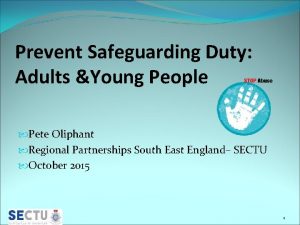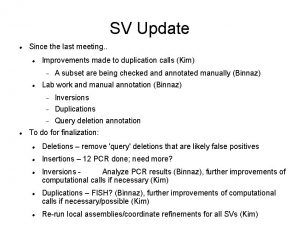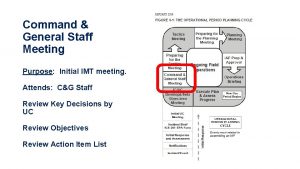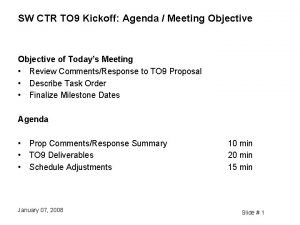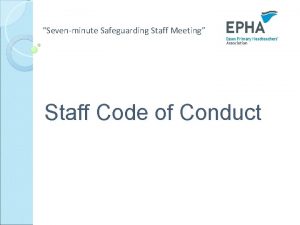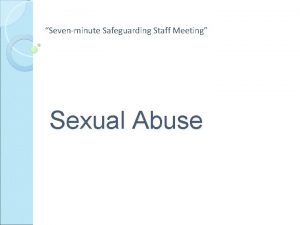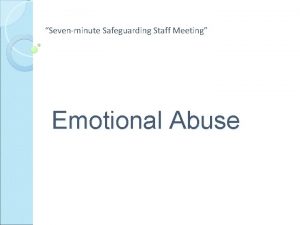Sevenminute Safeguarding Staff Meeting The PREVENT Duty Since







- Slides: 7

“Seven-minute Safeguarding Staff Meeting” The PREVENT Duty

Since July 2015 all schools have been subject to a duty to have “due regard” to the need to prevent people from being drawn into terrorism. Do you know the four general themes the guidance covers?

Risk assessment Working in partnership Staff training IT policies

Staff responsibilities in relation to Prevent Schools have a vital role to play in protecting pupils from the risks of extremism and radicalisation. Keeping children safe from risks posed by terrorist exploitation of social media should be approached in the same way as safeguarding children from any other online abuse. If an adult in school has a concern for the safety of a specific young person at risk of radicalisation, they should follow the school’s safeguarding procedures, including discussing the concern with the Designated Safeguarding Lead and, if deemed necessary, with children’s social care. Staff can also contact the local police force or dial 101 (the non-emergency number). The local authority or police might suggest a referral to the “Channel” programme, a voluntary Government programme which aims to safeguard children and adults from being drawn into terrorist activity. The Education Lead for PREVENT in Barnet is currently Matt Leng.

2 minute discussion What local risks do we face in relation to extremism and radicalisation? What signs might alert me to the possibility that a pupil (or a colleague) is becoming radicalised?

How to spot the tell-tale signs of radicalisation Being overly secretive about their online viewing – this being one of the core ways in which ISIS is known to communicate. Displaying feelings of isolation or expressions of an ‘us and them’ mentality – a sign of the sense of social isolation. Becoming more argumentative or domineering in their viewpoints, being quick to condemn those who disagree and ignoring views that contradict their own. Questioning their faith or identity. Downloading or promotion extremist content. Social isolation – losing interest in activities they used to enjoy, distancing themselves from friends and social groups. Altered appearance – change in style of dress and/or personal appearance. Abnormal routines, travel patterns or aspirations.

Additional guidance and further reading Prevent Duty guidance for England Wales July 2015 Counter Extremism Strategy HM Government 2015 Educate Against Hate E-learning training package https: //www. elearning. prevent. homeoffice. gov. uk/ Keeping Children Safe in Education September 2016 Teaching approaches that help build resilience to extremism among young people Promoting fundamental British values as part of SMSC in schools Anti-Terrorist Hotline 0800 789321 Matt Leng – community engagement/current Prevent Officer – 020 8359 2995 http: //educateagainsthate. com/
